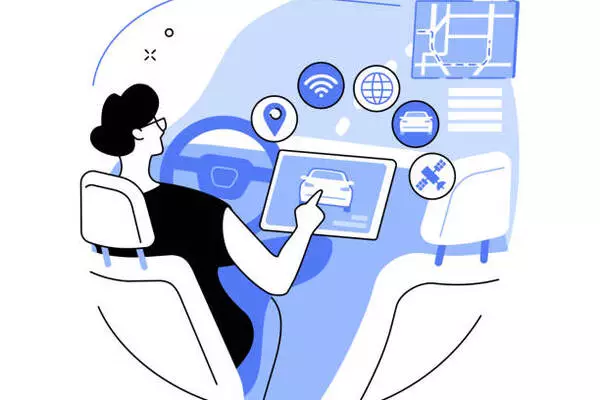A test drive can be an effective way for consumers to get a sense of the performance and features of an electric vehicle (EV), and can help them decide whether or not to purchase one. During a test drive, potential buyers can experience the smooth and quiet ride of an EV, as well as its instant torque and acceleration. They can also see how the vehicle handles and get a feel for the interior and technology features. Additionally, test drives can provide an opportunity for buyers to ask questions and get more information about the vehicle from a salesperson or EV expert. Overall, a test drive can be a valuable step in the EV buying process and can help consumers make an informed decision about purchasing an electric vehicle.
A new study discovered that test-driving an electric vehicle boosts some potential buyers’ personal identity as early adopters of the latest technologies. According to the study, a stronger sense of being a timely user of new gadgetry was linked to a higher likelihood that the test driver would show interest in purchasing the car. Although the test drive increased study participants’ perceptions that an electric vehicle could serve as a status symbol, this expectation did not translate into a desire to purchase one.
The findings help increase understanding of what fuels consumer behavior behind purchases related to sustainability and offer insights that could guide electric vehicle (EV) marketing efforts, said senior author Nicole Sintov, associate professor of behavior, decision-making, and sustainability at The Ohio State University.
An electric vehicle can symbolize different things to different people – it’s not going to be the same across the board. That’s why it’s important to consider the variety of different qualities an EV can reflect. What we found is that EV test drives have a lot of potentials to change how people think of themselves and that was linked to increased intention to buy.
Nicole Sintov
“An electric vehicle can symbolize different things to different people – it’s not going to be the same across the board. That’s why it’s important to consider the variety of different qualities an EV can reflect,” she said. “What we found is that EV test drives have a lot of potentials to change how people think of themselves and that was linked to increased intention to buy.”
Sintov collaborated on the study with the study’s first author, Atar Herziger, a former postdoctoral researcher at Ohio State who is now on the faculty of the Technion — Israel Institute of Technology. The study was recently published in the Journal of Environmental Psychology.
Sintov and Herziger wanted to know if and how a test drive in an electric vehicle affects two types of symbolic meaning: private meaning, which supports an individual’s self-perception, and public meaning, which influences how others perceive the EV owner. And, if those definitions change, how does that affect the prospective buyer’s decision to buy?

Two studies were carried out: one was a randomized experiment using a virtual test drive, and the other was a collaboration with Smart Columbus to survey people who chose to participate in an EV test drive. Over the two studies, a total of 729 participants were asked before and after the test drive to rate how owning an EV would affect their self-perception and how others would perceive them. Following the test drive, they were asked if they planned to buy or lease the vehicle or recommend it to a friend.
The research focused on three types of private symbolic meaning linked to owning an electric car: being pro-environment, an early adopter of new technologies, or a car authority. To gauge public meaning, the survey asked participants to report the extent to which they perceived that driving the EV says something about the kind of person they are.
In the case of the virtual test drive, the researchers used an identical video of an EV model that wasn’t yet available in the United States, removing all visible branding and sound. The virtual test drive included demonstrations of interior features and a short ride from the driver’s perspective; the only difference was that some participants were told the car was a conventional gas-powered vehicle, while others were told it was an EV.
Statistical analysis revealed that the virtual experience in the EV strengthened participants’ perception of the EV as an expressive object and increased their self-identity as early adopters of technology from pre- to post-test drive.
“We didn’t see that for those who were told they were test-driving a conventional vehicle,” said Sintov, a faculty member in Ohio State’s School of Environment and Natural Resources. “They had the same stimuli, but telling them it was one thing or another obviously changed the perceptions not only of the vehicle, but of themselves.”
However, only the reinforced personal identity – the private symbolic meaning – was linked to purchase intent. The real-world test drive results had a similar effect on enhancing both public and private symbolic meanings of an EV, this time increasing both early-technology-adopter and car-authority identities, and only the reinforced personal identities led to stronger intentions to lease or buy the car.
The distinctions between public and private meanings, as well as their influence on purchasing intentions, are important from both a theoretical and practical standpoint, according to Sintov. And considering the test drive’s influence on those meanings takes into account the fact that buying a car usually requires a lot of thought – it’s not a decision made at a single point in time, she explained.
“We really wanted to parse these things out more concretely than previous studies on EV symbolic meanings had – all in the context of whether a test drive moves things,” she said. Because the results showed that test drives can lead to a purchase, marketing around such experiences could be especially important.
“If EV marketing efforts focus on saying, ‘Look at you – you have cool person status,’ that is not the route we identified,” Sintov said. “‘How do I see myself differently after this test drive, and in particular, how do I see myself differently in terms of being an early adopter of technology?’ That is what makes people want to buy the car.”
















